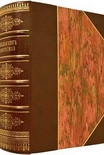Myths and Legends of China by E. Werner (free ebook reader for iphone TXT) 📗

- Author: E. Werner
Book online «Myths and Legends of China by E. Werner (free ebook reader for iphone TXT) 📗». Author E. Werner
The Cask of Pearls
Fearing to be admonished for the fraud by another of his ministers, the scholar Wang Tan, the Emperor resolved to put a golden gag in his mouth. So one day, having invited him to a banquet, he overwhelmed him with flattery and made him drunk with good wine. “I would like the members of your family also to taste this wine,” he added, “so I am making you a present of a cask of it.” When Wang Tan returned home, he found the cask filled with precious pearls. Out of gratitude to the Emperor he kept silent as to the fraud, and made no further opposition to his plans, but when on his death-bed he asked that his head be shaved like a priest’s and that he be clothed in priestly robes so that he might expiate his crime of feebleness before the Emperor.
K’ang Hsi, the great Emperor of the Ch’ing dynasty, who had already declared that if it is wrong to impute deceit to a man it is still more reprehensible to impute a fraud to Heaven, stigmatized him as follows: “Wang Page 132Tan committed two faults: the first was in showing himself a vile flatterer of his Prince during his life; the second was in becoming a worshipper of Buddha at his death.”
The Legend of Yü Huang
So much for historical record. The legend of Yü Huang relates that in ancient times there existed a kingdom named Kuang Yen Miao Lo Kuo, whose king was Ching Tê, his queen being called Pao Yüeh. Though getting on in years, the latter had no son. The Taoist priests were summoned by edict to the palace to perform their rites. They recited prayers with the object of obtaining an heir to the throne. During the ensuing night the Queen had a vision. Lao Chün appeared to her, riding a dragon, and carrying a male child in his arms. He floated down through the air in her direction. The Queen begged him to give her the child as an heir to the throne. “I am quite willing,” he said. “Here it is.” She fell on her knees and thanked him. On waking she found herself enceinte. At the end of a year the Prince was born. From an early age he showed himself compassionate and generous to the poor. On the death of his father he ascended the throne, but after reigning only a few days abdicated in favour of his chief minister, and became a hermit at P’u-ming, in Shensi, and also on Mount Hsiu Yen, in Yünnan. Having attained to perfection, he passed the rest of his days in curing sickness and saving life; and it was in the exercise of these charitable deeds that he died. The emperors Ch’êng Tsung and Hui Tsung, of the Sung dynasty, loaded him with all the various titles associated with his name at the present day.
Both Buddhists and Taoists claim him as their own, Page 133the former identifying him with Indra, in which case Yü Huang is a Buddhist deity incorporated into the Taoist pantheon. He has also been taken to be the subject of a ‘nature myth.’ The Emperor Ching Tê, his father, is the sun, the Queen Pao Yüeh the moon, and the marriage symbolizes the rebirth of the vivifying power which clothes nature with green plants and beautiful flowers.
T’ung-t’ien Chiao-chu
In modern Taoism T’ung-t’ien Chiao-chu is regarded as the first of the Patriarchs and one of the most powerful genii of the sect. His master was Hung-chün Lao-tsu. He wore a red robe embroidered with white cranes, and rode a k’uei niu, a monster resembling a buffalo, with one long horn like a unicorn. His palace, the Pi Yu Kung, was situated on Mount Tzŭ Chih Yai.
This genie took the part of Chou Wang and helped him to resist Wu Wang’s armies. First, he sent his disciple To-pao Tao-jên to Chieh-p’ai Kuan. He gave him four precious swords and the plan of a fort which he was to construct and to name Chu-hsien Chên, ‘the Citadel of all the Immortals.’
To-pao Tao-jên carried out his orders, but he had to fight a battle with Kuang Ch’êng-tzŭ, and the latter, armed with a celestial seal, struck his adversary so hard that he fell to the ground and had to take refuge in flight.
T’ung-t’ien Chiao-chu came to the defence of his disciple and to restore the morale of his forces. Unfortunately, a posse of gods arrived to aid Wu Wang’s powerful general, Chiang Tzŭ-ya. The first who attacked T’ung-t’ien Chiao-chu was Lao Tzŭ, who struck him several times with his stick. Then came Chun T’i, armed with his cane. The buffalo of T’ung-t’ien Chiao-chu Page 134stamped him under foot, and Chun T’i was thrown to the earth, and only just had time to rise quickly and mount into the air amid a great cloud of dust.
There could be no doubt that the fight was going against T’ung-t’ien Chiao-chu; to complete his discomfiture Jan-têng Tao-jên cleft the air and fell upon him unexpectedly. With a violent blow of his ‘Fix-sea’ staff he cast him down and compelled him to give up





Comments (0)